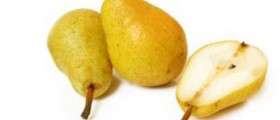
There is something very interesting about figs. Most of us think figs are small luscious fruits with chewy texture and delicate smell. In fact, figs are flowers, a false fruit or multiple fruit, in which the flowers and seeds raise jointly to form a single mass. Figs native to southwest Asia and the eastern Mediterranean region, but they are available dried during the whole year in every part of the world. The ancient civilizations recognized healing powers of figs and even the Antediluvian king of Pontus Mithridates had ordered his citizens to use figs everyday to keep them away from diseases. The fig is a perfectly functional food, as it has both nutritional and medicinal values.
Nutritional facts about figs
Figs are excellent sources of dietary fiber, potassium and manganese. One serving of dry figs, of approximately 371 grams, contains 371 calories. The good point about figs is that consuming them fresh or dried does not change the amount of healthy nutrients in them. The figs are very low in saturated fats, cholesterol and sodium, but the sugar content in figs is relatively high. One smaller portion of figs contains 71 grams of sugar but the other portion of carbohydrates contains as much as 15g of dietary fiber. This is enough to satisfy 58% of recommended daily allowance (RDA) for dietary fiber. One single portion of figs can satisfy 24% of RDA for calcium, 29% of RDA for vitamin K, 28% of RDA for manganese and 29% of RDA for potassium.
Medical properties of figs
Figs are excellent in the treatment of blood pressure, as they contain high amounts of potassium. Low intake of potassium is associated with high blood pressure so that the regular intake of figs may work as a prevention method.
Being rich in dietary fiber, figs are excellent for weight management and fighting obesity. Dietary fiber adds a bulk to our food and promotes the regular movements of the bowel. Furthermore, it adds to the feeling of fullness and prevents food cravings.
The fiber is also important as a protective agent against postmenstrual breast cancer. Women that consume a lot of fiber have a 50% less chances of developing breast cancer.
The leaves of the fig are also powerful natural remedies, used to reduce amount of insulin needed by patients with advanced stages of diabetes who require insulin injections.
Figs are also great bone density promoters, as they contain high amounts of calcium. They are extremely good in the prevention of osteoporosis.

















Your thoughts on this
Loading...